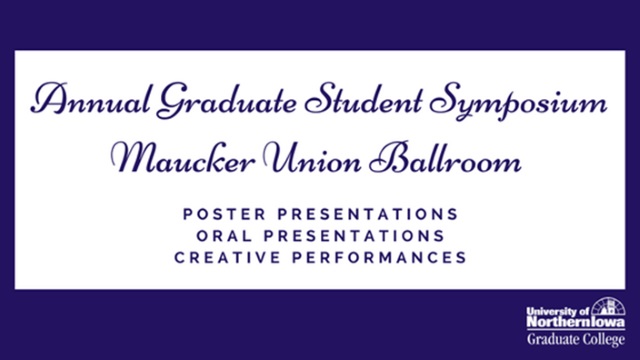
Complete Schedule
Queer Citizenship: Lesbian and National Identities in Radclyffe Hall's "The Well of Loneliness" and Compton Mackenzie's "Extraordinary Women"
Presentation Type
Oral Presentation (Electronic Copy Not Available)
Keywords
National characteristics, British; Lesbianism in literature; Lesbians--Great Britain--Identity;
Abstract
As World War I had concluded, England was, like many countries, searching for a lost sense of national identity. In the aftermath of a devastating world war, the likes of which had not been seen before, how did the citizens of the nation now identify themselves? To further complicate matters, women’s sexual identities had been drawn into the public light, as obscenity and libel trials had swept the nation, before, during, and after the war itself. How, then, did the emergence of a lesbian identity relate to national identity, in a time when homosexuality was often seen as foreign or seditious? I believe that two seemingly disparate novels may offer answers to this question: Radclyffe Hall’s The Well of Loneliness (1928) and Compton Mackenzie’s Extraordinary Women (1928). By reading the two novels in tandem, and with a specific focus on the characters of Stephen Gordon and Aurora Freemantle, I argue that some forms of and representations of lesbianism can be seen to be inextricably intertwined with British nationality, through an examination of the mannerisms, adoption and adaptation of traditionally “masculine” roles, and sartorial choices of both characters. Further, parallels may be drawn between the literary lesbian experience and the lived British national experience following the conclusion of World War I, strengthening the idea that lesbianism and national identity are not mutually exclusive or seditious, and that, by reading both in parallel with each other, we may come to a deeper understanding of the reconciliation between queer identities and national identities.
Start Date
3-4-2018 1:00 PM
End Date
3-4-2018 4:00 PM
Faculty Advisor
Jolene Zigarovich
Department
Department of Languages and Literatures
Copyright
©2018 Hannah Lane
Embargo Date
3-30-2018
Queer Citizenship: Lesbian and National Identities in Radclyffe Hall's "The Well of Loneliness" and Compton Mackenzie's "Extraordinary Women"
As World War I had concluded, England was, like many countries, searching for a lost sense of national identity. In the aftermath of a devastating world war, the likes of which had not been seen before, how did the citizens of the nation now identify themselves? To further complicate matters, women’s sexual identities had been drawn into the public light, as obscenity and libel trials had swept the nation, before, during, and after the war itself. How, then, did the emergence of a lesbian identity relate to national identity, in a time when homosexuality was often seen as foreign or seditious? I believe that two seemingly disparate novels may offer answers to this question: Radclyffe Hall’s The Well of Loneliness (1928) and Compton Mackenzie’s Extraordinary Women (1928). By reading the two novels in tandem, and with a specific focus on the characters of Stephen Gordon and Aurora Freemantle, I argue that some forms of and representations of lesbianism can be seen to be inextricably intertwined with British nationality, through an examination of the mannerisms, adoption and adaptation of traditionally “masculine” roles, and sartorial choices of both characters. Further, parallels may be drawn between the literary lesbian experience and the lived British national experience following the conclusion of World War I, strengthening the idea that lesbianism and national identity are not mutually exclusive or seditious, and that, by reading both in parallel with each other, we may come to a deeper understanding of the reconciliation between queer identities and national identities.


